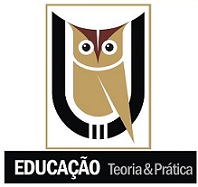Perspectives from the World Bank for teacher education in Brazil: a critical analysis
DOI:
https://doi.org/10.18675/1981-8106.vol24.n47.p176-194Keywords:
World Bank. Educational policies. Teacher education.Abstract
This article aims to analyze part of the document "Achieving world-class education in Brazil: Next Steps," produced by the World Bank in 2010 to guide the setting of priorities in the Brazilian educational policy. This is a clipping from a literature that analyzes the guidelines proposed by the World Bank for education in developing countries and how these guidelines are directly affecting the educational policy in Brazil. In undertaking the study of this particular document, we focus on the actions proposed by the bank that should be adopted for the improvement of education in order to increase the economic competitiveness of Brazil, especially those that relate to the role assigned to the teacher in this process. Our analyzes reveal that the proposed guidelines by the bank consolidate the initial and continuing training programs strictly technical, without considering the already precarious work environments for teachers in public schools, dispensing the necessary theoretical and pedagogical knowledge and instituting a design for teacher education based only on technical training.Downloads
Additional Files
Published
How to Cite
Issue
Section
License
Authors who publish in this journal agree to the following terms:
a) Authors assign copyright to the journal, with the work simultaneously licensed under the Creative Commons Attribution License that allows sharing of the work with acknowledgment of authorship and publication in this journal.
b) The policy adopted by the Editorial Committee is to assign copyright only after a period of 30 months from the date of publication of the article. After this time, authors interested in publishing the same text in another work must send a letter to the Editorial Committee requesting the release of the assignment of copyright and wait for a response.
c) This journal provides public access to all its content, since this allows greater visibility and reach of published articles and reviews. For more information on this approach, visit the Public Knowledge Project, a project that developed this system to improve the academic and public quality of research, by distributing OJS as well as other software to support the public access publication system to academic sources. The names and email addresses on this website will be used exclusively for the purposes of the journal and will not be available for other purposes. This journal provides open any other party  This work is licensed under a Creative Commons License
This work is licensed under a Creative Commons License











